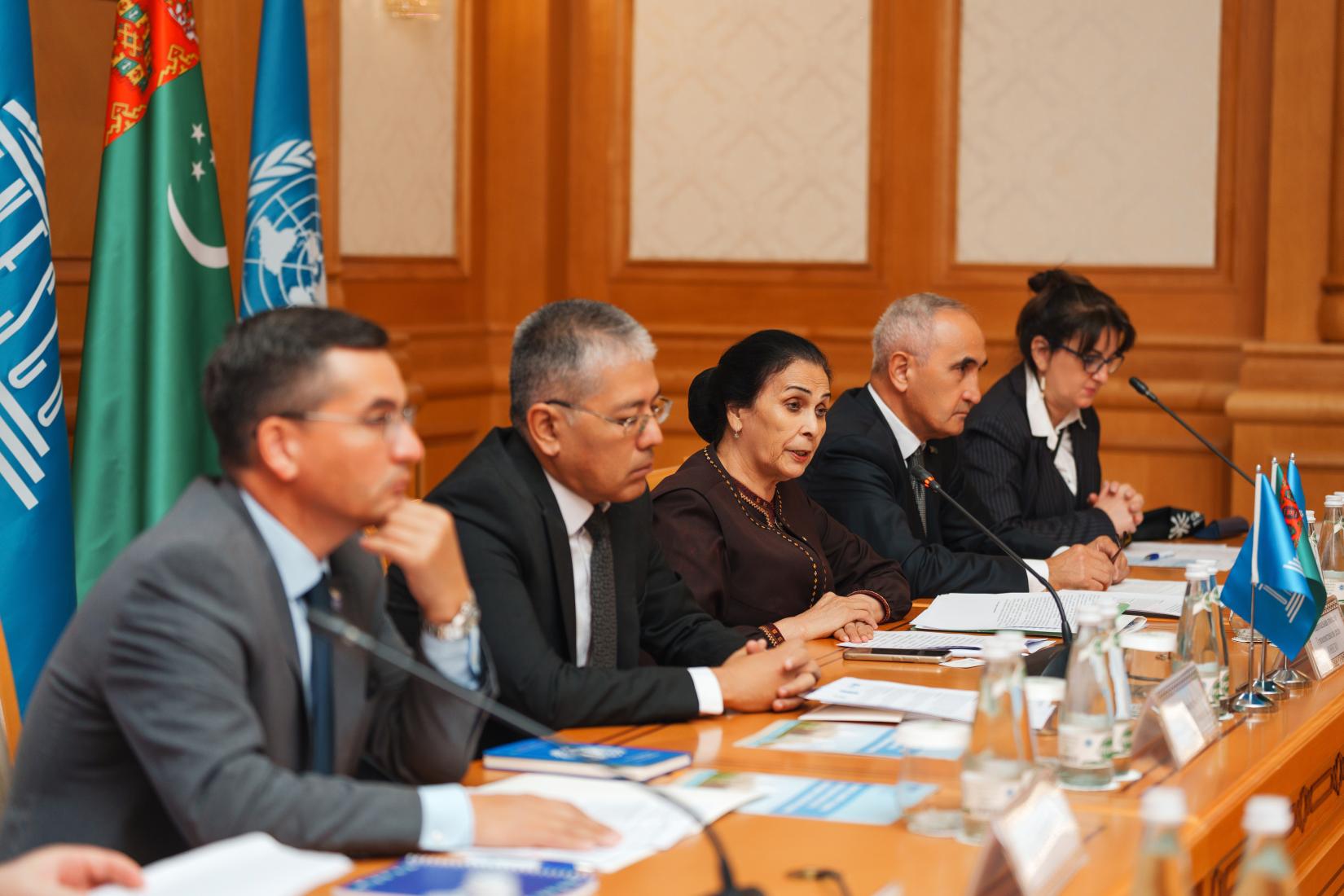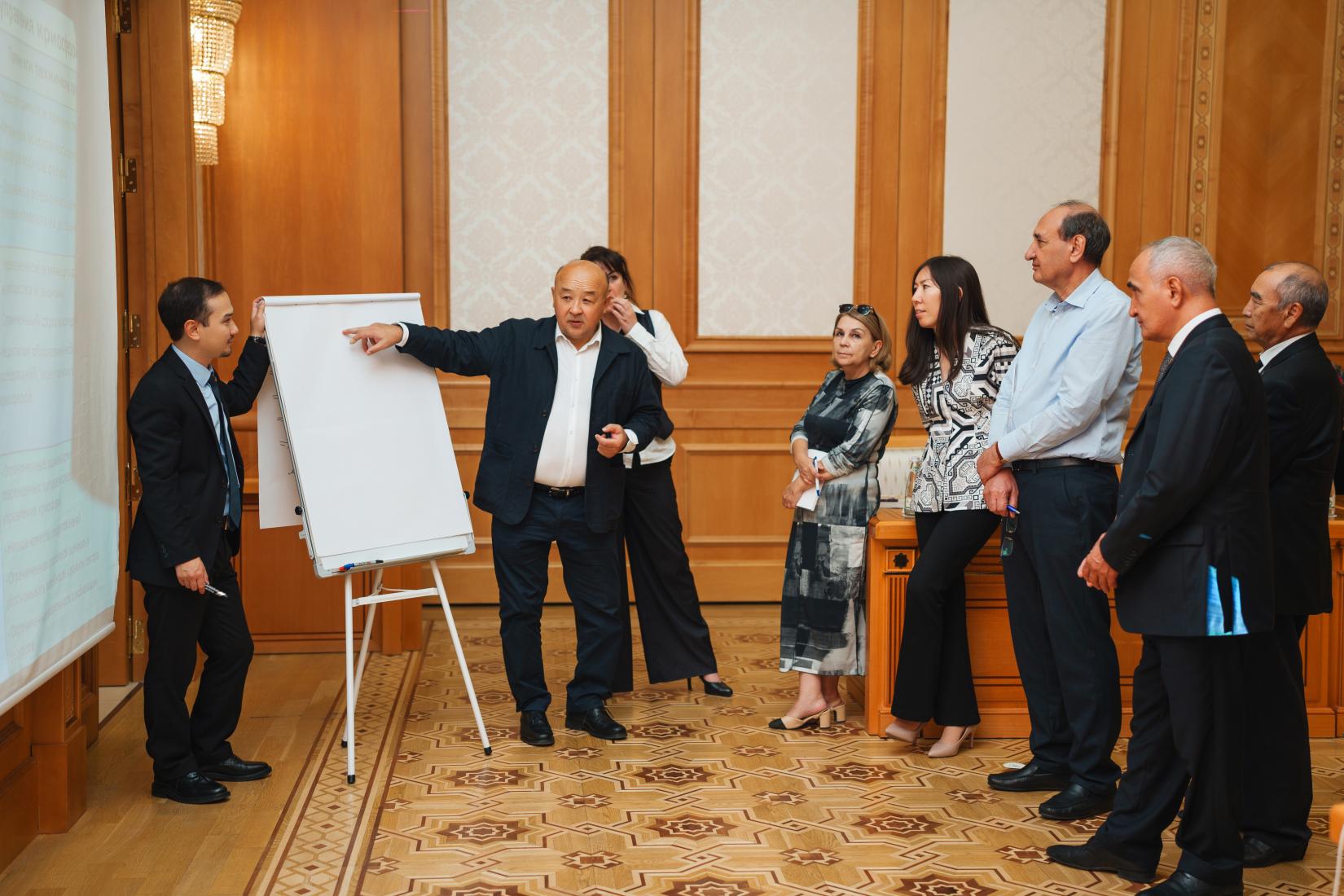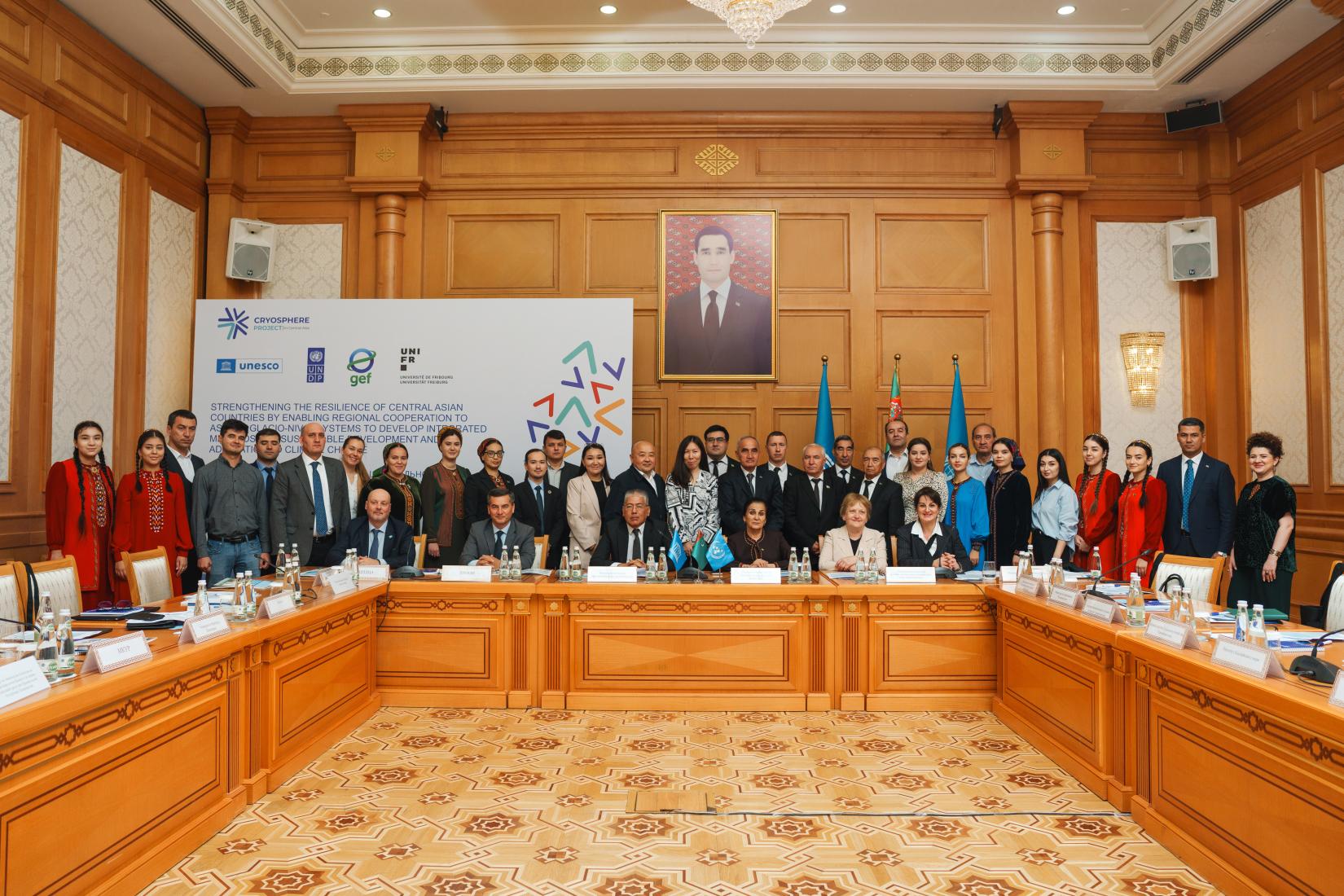National Workshop in Ashgabat Concludes Under the GEFUNDP-UNESCO Project
10 October 2024
Ashgabat, 9 October – A national workshop took place in Ashgabat from 8 to 9 October 2024, as part of the GEF-UNDP-UNESCO project titled «Strengthening the Resilience of Central Asian Countries by Enabling Regional Cooperation to Assess Glacio-nival Systems to Develop Integrated Methods for Sustainable Development and Adaptation to Climate Change». This event marked the conclusion of a series of national workshops held in the Kyrgyz Republic, Kazakhstan, Uzbekistan, and Tajikistan, building upon discussions initiated at the regional workshop in Almaty in April 2024.
The event brought together cryosphere research experts, data management specialists, and policymakers. The event was conducted using the GEF IW:LEARN methodology for Transboundary Diagnostic Analysis and Strategic Action Plans (TDA/SAP). The main goal of the workshop was to present to local specialists the status of the cryosphere in other Central Asian, discuss key challenges in monitoring and research, propose solutions to mitigate the effects of climate change on the cryosphere in Turkmenistan.

Chinar Rustamova, Executive Secretary of the National Commission of Turkmenistan for UNESCO, opened the event, emphasizing that Turkmenistan aims to expand cooperation with international organizations like the UN, UNESCO, and UNDP to address issues of rational water resource management and climate change.
"The dynamics of global warming lead to the reduction and melting of glaciers, which disrupts the planet’s water balance, including our region’s, where water levels in the Syr Darya and Amu Darya rivers are declining," said Chinar Rustamova.
“Our country, like others dependent on the Amu Darya’s waters, relies heavily on the flow of its tributaries originating from the Pamir and Hindu Kush mountain ranges,” noted Pirli Kepbanov, the Director of the National Institute of Deserts, Flora, and Fauna under the Ministry of Nature Protection of Turkmenistan. He highlighted that the health of the Amu Darya directly influences the country’s water supply and ecosystems, including the Karakum River, which provides up to 90% of the nation’s freshwater needs.
Participants discussed the outcomes of the cryosphere assessment in Central Asia, examining key issues identified during previous seminars, with a particular emphasis on the context of Turkmenistan.

The second day focused on interactive group discussions, where participants explored stakeholders' perspectives, identified priorities in raising awareness, capacity building, and planning pilot activities for Turkmenistan under the project. “The workshop was filled with interactive discussions, which facilitated an active exchange of experiences and the development of concrete next steps,” said Nana Baramidze, Project Manager.
The outcomes of the fruitful work during the workshop should significantly contribute to the development of scenario-based strategies to address future changes in the cryosphere across Central Asia and to enhance regional cooperation and adaptation measures.

The project "Strengthening the Resilience of Central Asian Countries through Regional Cooperation on the Assessment of Glacio-Nival Systems to Develop Integrated Sustainable Development and Climate Change Adaptation Strategies," financed by the GEF through UNDP and implemented by UNESCO, addresses a critical environmental challenge in the region – the degradation of snow, glacier, and permafrost systems (glacio-nival systems), which are key sources of water for Central Asian countries. As the region heavily relies on these systems for water supply, agriculture, and energy, understanding and preserving them is essential. The project aims to strengthen regional cooperation and collaboratively develop strategies to enhance resilience to climate change and changes in the cryosphere.



